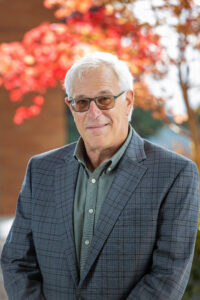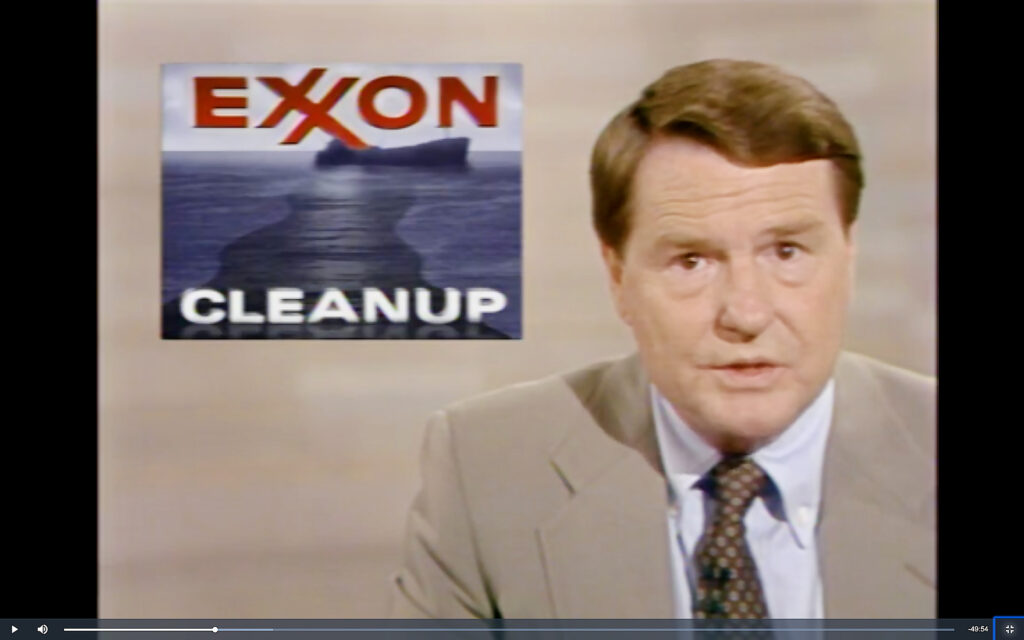Foster Communication Faculty Spotlight – Lee Hochberg
Get to know Lee Hochberg, who has taught Business Communication courses at the University of Washington Foster School of Business, including “Finding Your Voice” and “TED Talks” since 2008.

Lee Hochberg is a television documentary producer and longtime Special Correspondent for the PBS NewsHour. Based in Seattle, he’s produced nearly 300 national mini-documentary reports. He led Public Broadcasting Service (PBS) coverage of the 1989 Exxon Valdez oil spill, providing the first network coverage of the disaster and the inadequate spill response by the oil industry. His other investigations led to improvements in emergency medical response, tighter safety standards in the trucking and mountain guide industries, improved access to food stamp benefits, and better accommodation of homeless students in public schools. His work has been awarded journalism’s George Foster Peabody Award, an Emmy, the Corporation for Public Broadcasting Documentary News Award, and other commendations.

He graduated with honors from Rice University in 1979, and received his M.A. from Stanford University in 1980. In his free time, you’ll find him sailing, skiing, biking, and playing baseball; he’s also an active documentary and nature photographer.
In this interview, Lee speaks about his experiences at Foster and shares his insights for current and future MBA students.
What excites you about your subject area?
In all the years of interviewing brilliant and accomplished people, I’ve been surprised by how many of them have difficulty speaking about their expertise in a memorable, impactful way. It’s exciting to help our talented students develop the skills to deliver their ideas memorably.
Which factors influenced your decision to join UW Foster?
As a documentary producer, I enjoyed mentoring and developing members of our production team. Working with Foster students was a chance to continue mentoring. When I was a student, I had college professors who influenced me in significant ways; teaching at Foster is an opportunity to give back.
What do you find meaningful about your time thus far at Foster?
Helping talented people overcome their fear of public speaking, helping them understand how the spoken message is different from the written message….helping them learn how to take advantage of that difference, and how to become accomplished and impactful speakers.
How is your teaching influenced by instructional best practices?
The best way to learn to present is…to present. “Finding Your Voice” and “TED Talks” create open, non-judgmental, supportive environments for students to deliver several speeches about their personal values and experiences. They practice speaking strategies, discuss with each other which strategies work best for them. They develop a better understanding of their own values and “voice”, and through repeated speeches and assessment, develop a better understanding of how to share that voice, how to use storytelling and presentation tools to deliver their message in an impactful way.
How do you maximize learning and keep students engaged?
It’s not hard to keep Foster MBA’s engaged- most know the importance of effective communication…and embrace the opportunity to learn and improve in a safe, supportive environment. We encourage student speakers to share the personal stories and experiences that have shaped their beliefs and values. We’re honest and constructive in feedback, always with a goal to “get better” – what matters is not their grade on individual assignments, but their development as authentic and impactful speakers. Students embrace that approach, focus on cultivating their message, and mastering speaking tools that help them deliver that message.
Are you currently doing work outside of Foster that influences what happens in the classroom?
I work with many companies on executive speaker training. We shape classroom teaching at Foster to address presentation problems that these executives face in the workplace.
Please tell us about the structure of your elective course – what can students expect to master by the end of it?
“Finding Your Voice” and “TED Talks” are short, intensive classes on effective presenting- how to speak from authenticity and personal voice, how to use storytelling to resonate with audiences, how to make key ideas memorable, how to connect with audiences. We examine “tools” of effective presentation and watch speakers using them. Students present several speeches for classmates to assess, and watch videos of their own presentations, for self-assessment and improvement.
How will students apply the knowledge and skills they gain in your classroom in their careers?
Many students’ class evaluations say “Finding Your Voice” and “TED Talks” are the most valuable classes they take at Foster…and should be required classes for MBAs. Speaking skills learned in the classes become part of the students’ strength as professionals.
